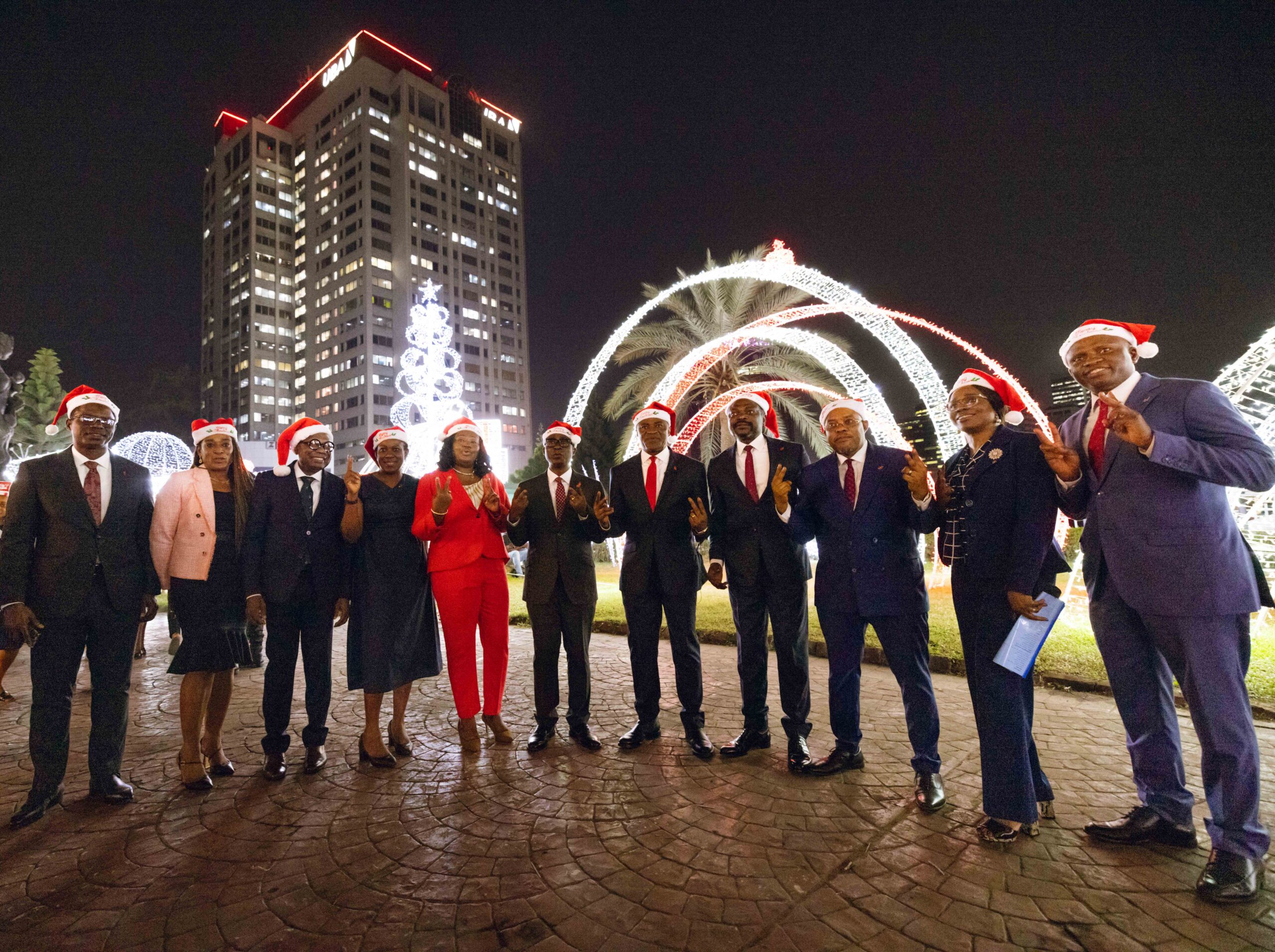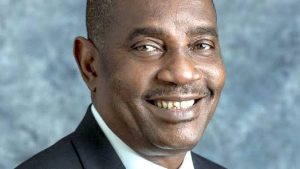Solomon Arase: Getting It Right At The Police Service Commission By Cletus Agada

The intelligence czar and former Inspector General of Police who brought so much innovation and creativity into policing while he held sway as the nation’s number one Cop has brought his signature of excellence to the administration of the Police Service Commission. Solomon Arase has dedicated his entire career to the advancement of social justice, safety, security and well-being of others as he joined the Nigeria Police Force in 1981, a year after he graduated from the prestigious Ahmadu Bello University Zaria with a Bachelor’s degree in Political Science. His adult life has been lived in service to fatherland and humanity.
Like a man who saw tomorrow, Mr Arase spent every of his free and not-so-free time developing himself, acquiring knowledge and skills that would eventually distinguish him from his peers. While combining work with studies, Mr Arase obtained a Law degree from the University of Benin and a Master’s Degree from the University of Lagos. He, by every standard, is a role model for young men and women who desire a successful career in public service.
Slow but steady, his promotions came and everywhere he found himself, he was always a square peg in a square hole due to his over-preparedness. As Commissioner of Police in Akwa Ibom State, he was a super cop remembered for his work ethic, commitment to the welfare of his personnel and crime-bursting intelligence skills. His talent was never hidden. He also served as Principal Staff Officer (PSO) to Mr Sunday Ehindero and two others when they occupied the office of the IGP between 2002 and 2008.
It is indeed a record to serve three different IGPs as PSO and Mr Arase achieved this feat without blemish. This probably was the best preparations he got for the office which he later occupied at the pinnacle of his career when he became the 18th indigenous Inspector General of the Nigerian Police Force. He had the opportunity to learn from the successes and mistakes of those before him and also had the time to think of what needed to be done to have a better force if given the opportunity.
No wonder, he ringed several positive changes as IGP and greatly improved the image of the Force, most especially in the area of respect for human rights and obedience to the rule of law, two key indicators that the Force had performed below average before his time. He established the IGP Intelligence Response Team (IGP – IRT) that burst several crimes in the country, most notably, the arrest of the notorious kidnap kingpin, Chukwudumeme Onwuamadike popularly known as Evans.
To address the issue of indiscipline and misconduct among men and officers of the Force, he also established the IGP Complaint Response Unit (IGP – CRU). It brought sanity to the force and reduced rights abuse and police brutality to its barest minimum as officers knew the consequences of any of their actions that went contrary to the rules of engagement.
On June 21, 2016, even though not tired, Mr Arase retired from Service after 35 years of meritorious and eventful service by Public Service rules. Like a South American professional football player who would go back to his country to end his career and impact on the younger generation after many years of professional football in Europe, Mr Arase went straight to his home State of Edo to assist the government. He was appointed to chair a task force responsible for the implementation of a State Anti-Community Development Association Law. This is the height of humility as the man who once controlled all the security apparatus of the nation’s Police Force could bend backwards just to give back to his community. He was also consulting for the European Centre for Election Support, and the Human Rights Centre at the University of Oslo and dedicated more time to his work with the Committee on Prevention of Torture, Geneva Switzerland which is currently developing a universal protocol on Investigative Techniques.
The golden fish has no hiding place in the river, so they say and on January 24, 2023, former President Mohammadu Buhari recalled Mr Arase from his retirement from public service and appointed him the Chairman of the Police Service Commission.
The Commission was established by an Act of the National Assembly in 2001 and is saddled with oversight responsibilities and has the power to appoint dismiss, promote and discipline officers of the Nigerian Police Force.
A trusted, stable and reliable hand, the appointment of Mr Arase elicited joy in many quarters, most especially among stakeholders in the security sector. His first task in office was to create a harmonious working relationship between the commission and the Police Force. A dispute had broken out between his predecessor and the then IGP over some irreconcilable differences. He promised to build a new police force that’s attractive to the younger generation and wasted no time in putting his hands on the plough.
He identified the recruitment process as one of the biggest problems confronting the Force and moved immediately to change the narrative. He engaged the Joint Admission and Matriculation Board, JAMB to conduct Computer Based Test, CBT for applicants to test their abilities. Mr Arase said the police need “personnel with mental mobility and fertile minds to excel and have a good working relationship with the public”. He said the nation must strive to build a police force that’s technology-driven and knowledge-based as that’s the only way to confront the security challenges facing the country. He insists that under his watch, admission into the Police Academy (POLAC/University) Wudil will be strictly by merit and that slots would not be shared by State Governors and other politicians.
A well-exposed former police officer who served on an international Peace-keeping assignment as part of the Nigerian contingent to the United Nations Mission in Namibia and a member of the International Bar Association, Mr Arase is conversant with international best practices as regards modern policing and has shown his readiness and commitment to domesticating those practices here at home.
He has promised that as long as he remains chairman of the commission, no single personnel, whether junior or senior who has no disciplinary issues would be allowed to stagnate in a rank. This sounds like great news for me those who have remained on the same rank for almost ten years. With the steps taken so far within a short period, most especially his commitment to the welfare of officers and men of the Force, and the elimination of corruption which has continued to ridicule the relentless efforts of our gallant officers, a new hope is rising and the morale of the personnel is high.
The task of building a civilian-friendly police force that can be trusted by the populace on issues of internal security rests squarely on the shoulders of Mr Arase and his men at the Police Service Commission and with the steps taken so far, Nigerians should expect a 21st century Police Force that enjoys the trust and confidence of all in the not too distant future.
Agada is a public affairs analyst based in Abuja.






